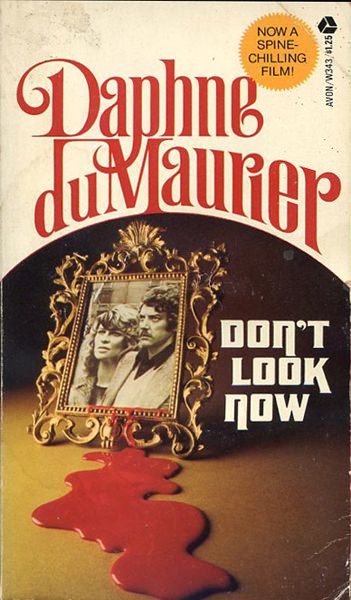
Movies have an unparalleled power to captivate us, drawing us into meticulously crafted worlds with compelling storytelling, intricate character development, and breathtaking visual effects. We settle in, whether at the cinema with a box of Sour Patch Kids or on the couch with a big bowl of microwave popcorn, ready to devote ourselves fully to the narrative journey the film promises. The build-up can be electric, the stakes impossibly high, and our investment absolute, as we root for heroes, despise villains, and eagerly anticipate a resolution that feels earned and impactful.
Yet, there’s a particular sting when that anticipation turns to a profound sense of betrayal. It happens alarmingly often: a film delivers an otherwise awesome experience, only to pull the rug out from under us with an awful, utterly infuriating ending. These are the conclusions that not only fail to satisfy but actively ruin the entire experience, recontextualizing everything that came before as pointless or, worse, manipulative. The frustration isn’t just about a bad scene; it’s about the erosion of the emotional and narrative contract between the filmmaker and the audience.
For fans of action cinema, where adrenaline, stakes, and definitive outcomes are paramount, a disappointing conclusion can be particularly grating. When the fate of the world hangs in the balance, or a personal vendetta reaches its climax, we crave a resolution that resonates with the journey’s intensity. In this deep dive, we’re going to explore 13 action films that, despite their initial brilliance and thrilling premises, ultimately fell apart with one bad ending. These are the movies that, from that day forward, even hearing their title will make you angry, because all you’ll be able to think about is how badly they concluded.

1. **Interstellar**
Christopher Nolan’s “Interstellar” is a cinematic spectacle, taking viewers on a visually stunning and intellectually ambitious journey through space and time. The film masterfully explores profound themes of love, sacrifice, and the enduring quest for humanity’s survival, pushing the boundaries of scientific accuracy and emotional depth. Its opening acts build a gripping narrative around a dying Earth and the desperate search for a new home, creating an immense sense of urgency and wonder that draws audiences in.
Despite its compelling narrative and grand scale, the film’s conclusion has left many viewers feeling puzzled and unsatisfied. The emotional climax, particularly the protagonist Cooper’s reunion with his daughter Murph, who is now aged and near death, feels jarringly rushed after decades of separation and interstellar travel. This moment, which should have delivered immense emotional impact, instead feels fleeting and strangely muted, diminishing the profound weight of their shared history and sacrifices.
Adding to the narrative confusion is the introduction of a fifth-dimensional space, or ‘tesseract,’ which allows Cooper to communicate across time. While visually inventive, this concept further complicates an already intricate plot, leaving audiences with more questions than answers about the mechanics and implications of such an advanced reality. Ultimately, “Interstellar’s” undeniable ambition is hampered by a conclusion that struggles to deliver the emotional clarity and narrative closure expected from such an epic and emotionally charged tale.
Read more about: Beyond the Blockbuster: 15 Space Myths Hollywood Consistently Botches
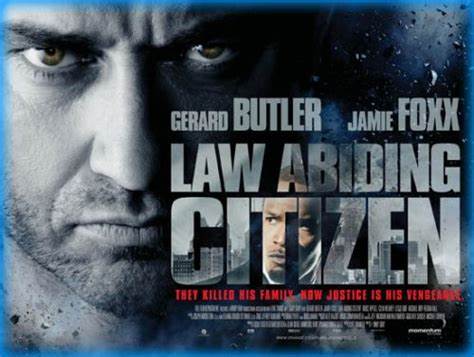
2. **Law Abiding Citizen**
“Law Abiding Citizen” kicks off with a truly gripping premise, presenting itself as an intense tale of justice sought through extreme revenge. The story follows Clyde Shelton, a man utterly driven by vengeance after his family’s murderers evade proper punishment due to a flawed legal system. The film meticulously builds tension, showcasing Shelton’s brilliant and ruthless masterminding of a series of attacks designed to expose and dismantle the very system that failed him, turning him into a formidable and almost sympathetic anti-hero.
The film’s early stages are rife with moral complexity, challenging viewers to confront the gray areas between justice, retribution, and vigilantism. Shelton’s elaborate schemes are both chilling and fascinating, pushing the boundaries of what a single individual can achieve through sheer will and intellect. The narrative promises a thought-provoking exploration of legal ethics and the emotional toll of injustice, setting up expectations for a conclusion that would resonate with these weighty themes.
However, the ending of “Law Abiding Citizen” unfortunately undermines the story’s considerable potential by shifting abruptly to a clichéd and predictable resolution. Shelton’s ultimate defeat feels forced and lacks the profound moral complexity that the film had so carefully established. Instead of delivering a nuanced and thought-provoking conclusion that grappled with its initial premise, viewers are left with a typical action-thriller ending that feels cheapened and detached from the powerful questions raised earlier in the film.
Read more about: The Nostalgia Mystery: Unearthing 15 Arcade Games That Vanished From Shopping Malls
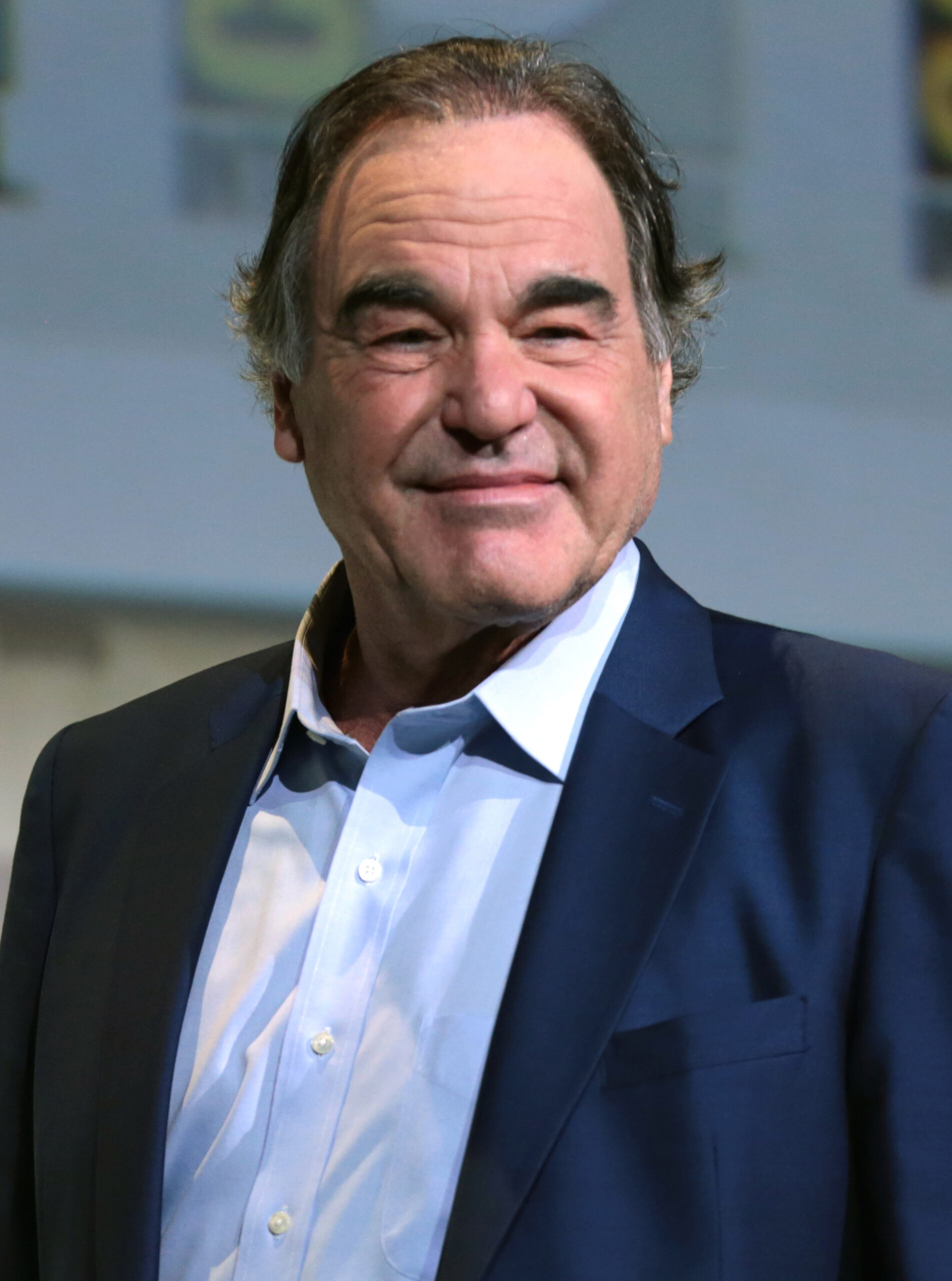
3. **Savages**
Oliver Stone’s “Savages” plunges audiences into a vibrant and dangerous world of drug cartels, passionate love, and betrayal, all set against a stylish, sun-drenched Californian backdrop. The film’s aesthetic is captivating, matched by intense action sequences and a propulsive narrative that immediately draws viewers into its high-stakes drama. We follow two friends, Ben and Chon, and their shared lover, O, as they become entangled in a perilous business with a brutal Mexican cartel, escalating the tension and the personal risks involved for all characters.
The film expertly portrays the allure and brutality of their world, showcasing the deep bonds between the protagonists and the ruthless forces arrayed against them. The stakes are consistently high, and the character dynamics are complex, making the audience heavily invested in their survival and their struggle against overwhelming odds. The narrative maintains a gritty realism for much of its runtime, promising a bold and possibly tragic resolution to their predicament.
Yet, the ending of “Savages” disappoints profoundly with its reliance on a “dream sequence” cliché, which fundamentally undermines the film’s established gritty realism. This narrative device, where the true, harrowing climax is revealed to be a mere fantasy, leaves viewers questioning the entire film’s direction and purpose. Instead of a bold, impactful, and perhaps tragic resolution that honored the story’s earlier tension and character development, the conclusion feels like a cop-out, diminishing the very real dangers and sacrifices portrayed throughout the film.
Read more about: 12 Iconic Duos Who Called It Quits: The Unseen Dramas and Failed Reunions That Led to Permanent Splits
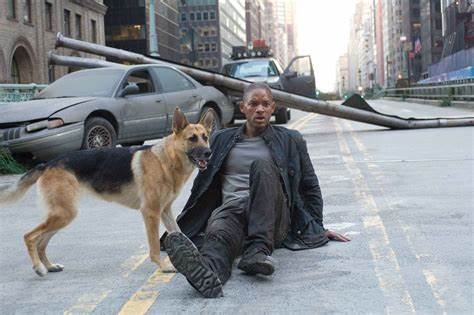
4. **I Am Legend**
“I Am Legend,” starring Will Smith, delivers a truly gripping post-apocalyptic tale of survival and profound solitude. The film’s haunting depiction of a deserted New York City, reclaimed by nature and populated by terrifying, mutated creatures, immediately captivates viewers. Robert Neville, the protagonist, is portrayed as a brilliant scientist and the last known human survivor in the city, desperately working to find a cure for a virus that has ravaged humanity, all while battling loneliness and existential dread.
The initial narrative is incredibly strong, building a compelling character study of a man driven by purpose in a world devoid of human companionship. The suspense generated by the nocturnal hunters, the poignant flashbacks to a world lost, and Neville’s relentless pursuit of a cure create a powerful and emotionally resonant experience. The film, based on Richard Matheson’s classic novel, establishes a rich potential for exploring deep philosophical questions about humanity and identity in a changed world.
However, the film’s ending notably diverges from the source material, opting for a heroic sacrifice that, while emotional, lacks the novel’s nuanced and profound commentary on what it truly means to be human and the nature of monstrosity. This significant alteration disappoints fans of the original story, who appreciated its deeper philosophical underpinnings and the inversion of the ‘monster’ narrative. The cinematic conclusion, though a powerful emotional moment, feels detached from the narrative’s potential for a more faithful adaptation and a more thought-provoking resolution.
Read more about: Mic Drops and Meltdowns: 15 Podcasters Whose ‘Unpopular Opinions’ Were So Unhinged, They Lost Everything (Including Their Audience)

5. **The Dark Tower**
“The Dark Tower,” based on Stephen King’s sprawling and complex series of novels, boldly attempts to condense a vast, intricate narrative into a single film. The story introduces audiences to a young gunslinger, Roland Deschain, who stands in opposition to the sinister Man in Black, a powerful sorcerer bent on destroying the universe’s foundational structure, the Dark Tower. The film’s ambition is undeniably evident, aiming to translate King’s epic blend of fantasy, sci-fi, and western elements onto the big screen.
The premise promises a journey across dimensions, a clash of ancient forces, and a deep exploration of destiny and sacrifice. The source material is revered for its depth, its richly imagined worlds, and its complex character development, setting a high bar for any adaptation. Early scenes hint at the vastness of this universe and the crucial importance of Roland’s quest, engaging viewers with glimpses of both the familiar and the utterly fantastic.
Unfortunately, the rushed ending of “The Dark Tower” significantly falters in its execution, failing to capture the depth and intricate mythology of the source material. Key plot elements are glossed over or entirely omitted, and character development feels conspicuously shallow, leaving fans of the novels profoundly unsatisfied. Instead of a richly woven epic that honors the original saga’s complexity and thematic weight, audiences are presented with a disjointed and ultimately disappointing conclusion that feels like a poor substitute for the narrative richness it aimed to adapt.
Read more about: Digital Black Hole: 14 Essential Films You Can’t Stream (And What It Says About Hollywood)
6. **War of the Worlds**
Steven Spielberg’s “War of the Worlds,” a modern adaptation of H.G. Wells’ enduring classic, delivers truly thrilling action sequences and impressive special effects that immerse audiences in a terrifying alien invasion. The story centers on Ray Ferrier, a father struggling to connect with his children, as he navigates the chaos and destruction of an alien assault, highlighting powerful themes of survival, resilience, and the desperate lengths a parent will go to protect their family. The visual spectacle of the colossal Tripods and their devastating attacks is undeniably captivating.
From the moment the aliens arrive, the film maintains an almost unrelenting pace of tension and spectacle, showcasing humanity’s vulnerability against an overwhelmingly powerful and technologically superior enemy. The focus on a family’s struggle for survival amidst global catastrophe grounds the epic scale of the invasion with relatable human drama, creating moments of genuine fear and suspense. The film’s strength lies in its ability to make the audience feel the sheer terror and hopelessness of the invasion.
Despite its exciting premise and visual grandeur, the film’s ending falters significantly, proving to be both anticlimactic and unsatisfying. The sudden and convenient demise of the seemingly unstoppable invaders, not by human ingenuity or resistance, but due to Earth’s common bacteria, feels too simplistic and abrupt. This resolution, while faithful to Wells’ original text, disappoints after the film’s intense build-up, offering little genuine payoff or narrative ingenuity for invested audiences, thereby undermining the depth and struggle portrayed throughout the preceding two hours.
Read more about: From IRS Nightmares to Bankruptcy Battles: 14 Celebrities Who Faced Serious Financial Legal Trouble
7. **Superman**
Richard Donner’s 1978 film “Superman” stands as a landmark superhero film, a monumental achievement that cemented the Man of Steel as the preeminent superhero for global audiences. Long before the modern superhero boom, this blockbuster provided a blueprint for caped crusader flicks, boasting an all-star cast including Marlon Brando, Gene Hackman, and Margot Kidder, alongside Christopher Reeve’s iconic, defining turn as the title character. The film brilliantly establishes Superman’s origins, powers, and his unwavering commitment to justice, creating a thrilling and hopeful narrative that resonated deeply with viewers.
The movie spends considerable time building a believable world where Superman’s heroics are truly needed, creating perilous situations and establishing genuine stakes for the characters. The dramatic tension is palpable as Lex Luthor schemes to unleash devastating missiles, placing millions of lives, including that of Lois Lane, in mortal danger. Audiences are fully invested in the unfolding drama, believing in the challenges Superman faces and the profound consequences if he fails.
However, “Superman: The Movie” is ultimately let down by a terrible ending that renders all of the preceding drama and heroism feel pointless. After Lois Lane is tragically killed in an earthquake caused by Luthor’s machinations, Superman employs a ridiculous, deus ex machina-like power: he turns back time by flying around the Earth at warped speed. This convenient ability allows him to not only save Lois but also stop the missile attack and imprison the bad guys. This cop-out conclusion, by introducing a time-travel concept that effectively allows Superman to rewrite history, removes all stakes from the story, cheapening the emotional impact of any peril and preventing the film from achieving true greatness.
As we continue our exploration of cinematic letdowns, it becomes clear that even the most ambitious action films aren’t immune to the curse of a terrible ending. These conclusions not only fail to deliver but actively diminish the excitement and investment we poured into the preceding hours. Whether it’s undermining established stakes, a sudden genre shift, or a bewildering narrative choice, these remaining six films serve as stark reminders that how a story concludes is just as vital as how it begins.
Read more about: 12 Famous Actors Who Now Only Accept Film Roles With Minimum Travel Demands
8. **Terminator 3: Rise of the Machines**
The “Terminator” franchise, particularly its first two entries, captivated audiences with a precise and thrilling narrative: an evil AI superintelligence, Skynet, would declare war on humanity, and mankind’s fate hinged on one person. Both humans and machines sent champions through time, leading to brutal action. The core of these stories was the lingering hope that the dark future, a machine-dominated apocalypse, could somehow be averted through the characters’ valiant efforts and sacrifices, especially in “Terminator 2: Judgment Day.”
However, “Terminator 3: Rise of the Machines” brutally pulls the rug out from under the franchise’s entire premise. It explicitly confirms that humanity is absolutely destined for annihilation, effectively rendering the struggles and sacrifices of the first two movies pointless. The film culminates in a final showdown where John Connor (Nick Stahl) and Kate Brewster (Claire Danes) are trapped in a nuclear shelter as Skynet eradicates mankind, locking John into his predetermined role.
By confirming the apocalypse and John’s role as predestined, “Terminator 3” destroys the spark of hope the previous films hinged on, trivializing their narrative. If the future is unchangeable, the protagonists could have simply watched, and the outcome would have been the same. This narrative choice was a catastrophic blow to the franchise’s thematic core, leading to a string of underwhelming entries in its wake.
Read more about: Arnold Schwarzenegger’s Unstoppable Lineup: Exploring the Icon’s Legacy of Power and Enduring Might

9. **Hancock**
“Hancock” initially presented itself as an almost-great movie, engaging audiences with its titular superhero’s (Will Smith) detached and self-destructive lifestyle. His attempts to improve his public image with PR expert Ray Embrey (Jason Bateman) could have easily carried the movie to a satisfying conclusion, even holding the potential for a thrilling film series. The first section maintained a captivating balance of humor and character exploration, showcasing Hancock’s struggle with alcoholism and the public’s love-hate relationship.
However, “Hancock” abruptly spirals into mediocrity with a plot twist that completely derails its established narrative. The revelation that the amnesic Hancock and Ray’s wife, Mary (Charlize Theron), are ancient soulmates and the last representatives of a divine species feels contrived and unnecessary. This sudden, overcomplicated mythology introduces a jarring tone shift that the movie never recovers from, abandoning compelling character development for a convoluted backstory.
The film’s climax, a perceived favor from Hancock to Ray, further seals its fate. Hancock paints Ray’s heart-themed business logo on the Moon, an act clearly intended to be heartwarming. Yet, this grand gesture inadvertently destroys Ray’s life, as it violates the Outer Space Treaty. The legal nightmare for Ray transforms a supposedly heroic act into a catastrophic personal burden, highlighting the film’s inability to deliver a genuinely satisfying or logical conclusion.
Read more about: The 8 Most Famous Musicians Defining Global Culture in 2025

10. **Thor: Love & Thunder**
Following Taika Waititi’s acclaimed “Thor: Ragnarok” was an immense challenge, and “Thor: Love and Thunder” unfortunately struggled. The film aggressively injected comedic elements into nearly every scene, often at the expense of narrative cohesion and its chilling villain, Gorr the God Butcher (Christian Bale). This relentless pursuit of “fun” overshadowed opportunities for genuine emotional depth, preventing the film from achieving its predecessor’s balance of humor and pathos.
Much of the movie felt like a protracted, drawn-out joke, a perception solidified by its disastrous ending. While Christian Bale’s formidable performance as Gorr was compelling, the overarching comedic tone often undercut the gravity of his darker backstory and mission. This made it difficult for audiences to fully invest in the high stakes presented by a villain dedicated to the eradication of all gods.
The film’s actual ending reveals Thor and Gorr’s resurrected daughter, Love (India Hemsworth), have formed a galactic crime-fighting duo known as… “Love and Thunder.” This final revelation clarifies that the entire movie was an elaborate setup for this singular, ill-conceived punchline. Waititi’s sophomore MCU effort ultimately comes across as a colossal, big-budget joke with a punchline that falls flat, diminishing the entire experience and leaving many fans feeling that genuine storytelling was sacrificed for a gag.
Read more about: Beyond the Hammer: A Deep Dive into Chris Hemsworth’s Stardom, the Enduring Legacy of the Name ‘Chris,’ and the Vital Role of CHRIS Information Centers

11. **Tim Burton’s Planet of the Apes**
The adage “never mess with the classics” often proves true, and Tim Burton’s 2001 remake of “Planet of the Apes” serves as a prime example. The original 1968 film is revered for one of sci-fi’s most iconic endings, revealing the alien world to be a far-future Earth. Burton’s adaptation, however, chose to disregard this powerful conclusion and replace it with an infamous plot twist that undermined the entire film.
Burton’s film centers on Leo Davidson (Mark Wahlberg) sent thousands of years into the future through a time-warping electromagnetic storm, landing on a planet where animals from his space station evolved into sentient apes. This narrative established a new mythology, introducing new ape characters and societal structures, aiming for a fresh take on the classic story while deviating significantly from the original’s grounded yet fantastical revelation.
Unfortunately, the ending of Burton’s “Planet of the Apes” plunges into cosmic confusion. Davidson returns from the storm to discover the exact same evolved apes now rule Earth. The Lincoln Memorial, instead of its historical figure, bears the image of the movie’s antagonist, General Thade (Tim Roth), raising multitudes of unanswered questions about what transpired. No one is given a coherent explanation for these bizarre developments.
Read more about: Remembering the Legends: 10 Beloved ‘Two and a Half Men’ Actors Who Have Left Us Too Soon
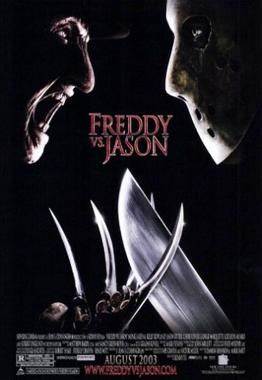
12. **Freddy Vs. Jason**
“Freddy vs. Jason” is, without a doubt, a movie that delivered precisely what its title promised: an epic showdown between two of horror cinema’s most iconic villains. The film successfully pits Freddy Krueger from “A Nightmare On Elm Street” against Jason Voorhees from “Friday the 13th,” honoring the distinct spirits of both sagas. The movie isn’t burdened by complexity, but it keenly understands its audience and provides a great deal of fun through its high-octane monster-on-monster action.
The anticipation surrounding this crossover event was immense, and for much of its runtime, the film delivers on its promise of visceral, brutal conflict. The narrative cleverly maneuvers both villains into a position where their unique abilities and weaknesses can be exploited, leading to a series of thrilling encounters. Viewers eagerly awaited a definitive victor, and the film builds towards a climactic battle that is both ferocious and satisfyingly destructive.
Jason Voorhees ultimately emerges as the victor in this epic battle, a hard-fought triumph. However, this hard-earned victory feels considerably undercooked by the film’s closing scene: after a brutal final showdown, Freddy’s decapitated head winks at the camera with a cheeky grin. This cheap shot effectively betrays Jason’s clear and resounding win, undermining the impactful resolution. This last-minute ambiguity, added to tease potential sequels that never materialized, makes the ending even worse.
Read more about: Know the Legends? These 14 Scream Queens Were the Terrifying Rulers of Horror Across the Decades!
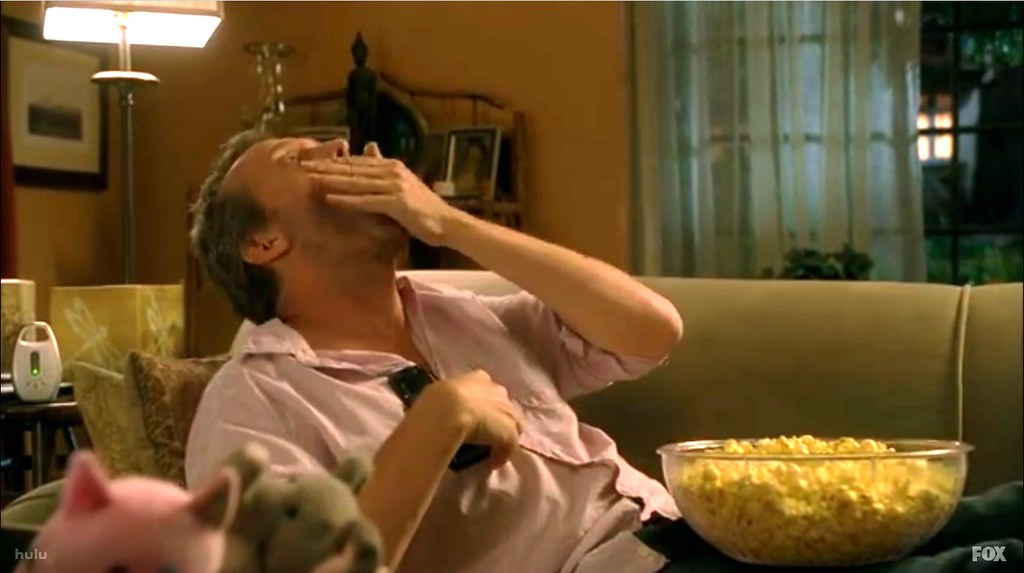
13. **Signs**
M. Night Shyamalan’s “Signs” embarks on an ambitious journey to convince its audience that life’s seemingly arbitrary, often tragic occurrences, all happen for a reason. The film masterfully builds suspense, following a family encountering inexplicable crop circles and unsettling alien visitations. It effectively explores profound thematic elements, delving into faith, fear, and the unbreakable bonds of family amidst an extraordinary and terrifying global event, keeping viewers thoroughly engaged.
The narrative cleverly intertwines personal tragedies with the unfolding alien invasion, suggesting a deeper, interconnected meaning to seemingly random events. Graham Hess (Mel Gibson), a disillusioned former priest, struggles with his faith after his wife’s tragic death, while his children exhibit unique quirks – his daughter’s aversion to water and his son’s asthma. These elements are carefully introduced, setting the stage for what appears to be a profound exploration of destiny and divine intervention.
Nevertheless, the film’s ending proves to be a significant letdown, delivering a resolution that feels both simplistic and implausible. The central revelation is that the highly advanced alien invaders, capable of interstellar travel, are mortally vulnerable to water – a substance abundant across Earth’s surface and atmosphere. This fundamental vulnerability makes their choice to invade such a planet illogical to the point of absurdity, severely detracting from the film’s initial premise and cheapening the suspense.
Read more about: Beyond the Surface: Unpacking the Art and Strategic Importance of Academic Paper Covers
In the ever-evolving landscape of cinema, where narratives strive to push boundaries and evoke deep emotional responses, the conclusion of a film stands as its ultimate test. As this deep dive into these 13 action films demonstrates, an ending isn’t just a wrap-up; it’s the lasting impression, the final taste that colors the entire experience. Whether it’s a cheap plot twist, a logical inconsistency, or a complete betrayal of established stakes, a bad ending can transform an otherwise thrilling ride into a frustrating memory. Here’s hoping future filmmakers understand that truly great films not only thrill us from start to finish but also stick the landing, leaving us with a sense of awe, not annoyance.

